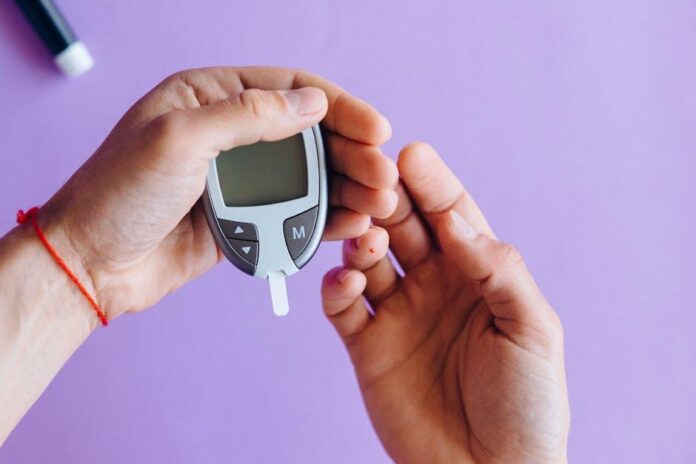
High blood sugar levels, also known as hyperglycemia, can have serious consequences on your overall health if left unmanaged. Understanding the dangers of high blood sugar levels is crucial for those who have diabetes or are at risk for developing diabetes. In this article, we will explore the risks associated with elevated blood sugar levels and provide some tips on how to keep your levels in check.
First and foremost, it’s important to understand what causes high blood sugar levels. When we consume food, our body breaks down carbohydrates into glucose, a type of sugar that serves as the primary source of energy for our cells. Insulin, a hormone produced by the pancreas, helps regulate the amount of glucose in our blood by transporting it into our cells.
However, when the body is unable to produce enough insulin or becomes resistant to its effects, blood sugar levels can rise to dangerous levels. This can lead to a variety of health problems, including:
1. Nerve damage: High blood sugar levels can damage the nerves throughout the body, leading to a condition known as diabetic neuropathy. This can cause numbness, tingling, or burning sensations in the hands and feet, as well as digestive issues and sexual dysfunction.
2. Cardiovascular disease: Elevated blood sugar levels can increase the risk of developing heart disease and stroke. This is because high glucose levels can damage the blood vessels and lead to the formation of plaque, which can restrict blood flow to the heart and brain.
3. Kidney damage: The kidneys play a crucial role in filtering waste products from the blood. However, when blood sugar levels are consistently high, the kidneys can become overwhelmed and damaged over time. This can lead to kidney disease and, in severe cases, kidney failure.
4. Vision problems: High blood sugar levels can also affect the blood vessels in the eyes, leading to diabetic retinopathy. This condition can cause vision loss or blindness if left untreated.
5. Compromised immune function: High blood sugar levels can weaken the immune system, making it more difficult for the body to fight off infections. This can lead to frequent illnesses and slow wound healing.
In addition to these complications, high blood sugar levels can also have a negative impact on your day-to-day life. Symptoms of hyperglycemia can include frequent urination, increased thirst, fatigue, blurred vision, and unexplained weight loss. If left untreated, hyperglycemia can progress to a life-threatening condition known as diabetic ketoacidosis, which requires immediate medical attention.
So, how can you prevent high blood sugar levels and reduce your risk of developing complications associated with diabetes? Here are a few tips to help you keep your blood sugar levels in check:
1. Follow a healthy diet: Eating a balanced diet that consists of whole grains, fruits, vegetables, lean proteins, and healthy fats can help regulate blood sugar levels. Avoid foods that are high in sugar, refined carbohydrates, and unhealthy fats.
2. Stay active: Regular physical activity can help improve insulin sensitivity and lower blood sugar levels. Aim to engage in at least 30 minutes of moderate exercise, such as brisk walking, cycling, or swimming, most days of the week.
3. Monitor your blood sugar: If you have diabetes, it’s important to regularly check your blood sugar levels with a glucose meter. This can help you adjust your medication, diet, and exercise routine as needed to keep your levels within a healthy range.
4. Take your medication as prescribed: If you have been prescribed medication to manage your blood sugar levels, it’s important to take it as directed by your healthcare provider. Skipping doses or adjusting your medication without consulting your doctor can lead to elevated blood sugar levels.
5. Stay hydrated: Drinking plenty of water can help flush out excess sugar from your bloodstream and keep your body properly hydrated. Aim to drink at least eight glasses of water per day.
6. Manage stress: Chronic stress can elevate blood sugar levels and make it more difficult to control your diabetes. Practice relaxation techniques, such as deep breathing, meditation, or yoga, to help reduce stress levels.
By following these tips and working closely with your healthcare provider, you can take control of your blood sugar levels and reduce your risk of developing complications associated with diabetes. Remember, early intervention is key to preventing long-term damage to your health, so don’t hesitate to seek medical attention if you notice any symptoms of high blood sugar.












